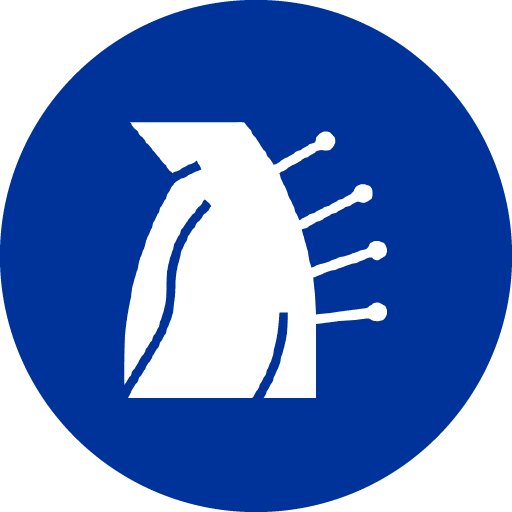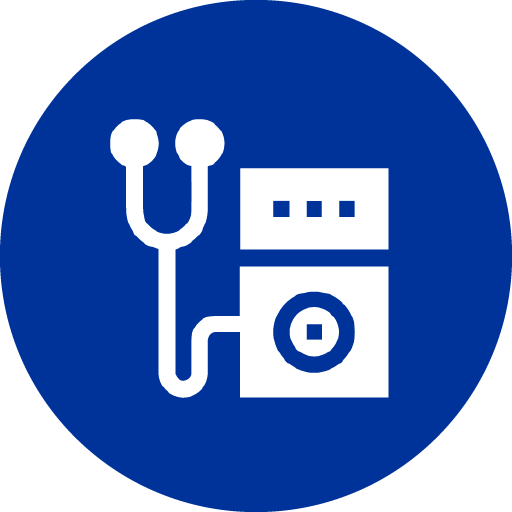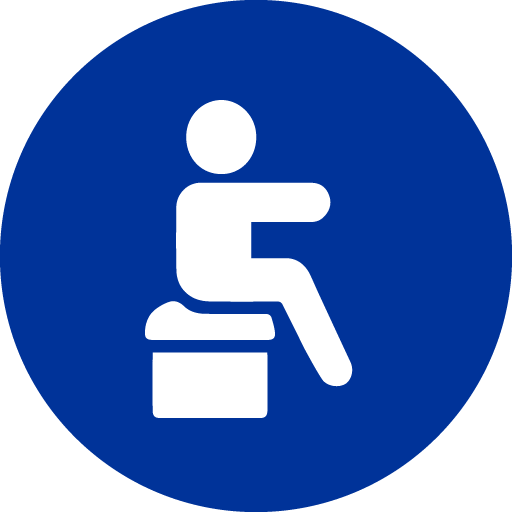Understanding Out-of-Network Claims in Medical Billing
When a plan and provider are not enrolled in the same network together, or if any one of them is not enrolled in any network, then resulting claims are considered Out-of-Network claims. For these claims patients are responsible for paying, a whole or a portion of the provider’s charges that exceed the pre-defined plan’s amount.
Normally healthcare providers including primary care physicians, hospitals, and specialists are allowed to charge whatever amount they think is appropriate for their services. Claims are a part of medical billing in which providers submit their claims to get reimbursements.
Health plans, meanwhile, are only obligated to pay health care claims within the limits specified in their respective policy or plan document, along with state and federal minimum essential coverage requirements. The total amount covered by an insurance policy or plan on a given claim is called the allowed amount and is often subject to copays, coinsurance, and/or deductibles owed by the patient.
More often than not, there is a difference between what the provider charges for their services and the amount the plan allows, leaving the patient responsible for the rest. When a patient is charged for the difference between the charges billed on a claim and the plan’s allowable amount, it is called a balance bill.
What are Out-of-Network Claims/Providers
Do You Need To Enroll To Be Out Of Network?
Typically, you do not have to sign up to be out of network. You are automatically an out-of-network provider if you do not sign a contract with an insurance plan, so no additional steps are needed on your part to be out of network. However, some insurance plans require you to register as an out-of-network provider.
You do not have to sign up to be out of network.
Why Insurance Providers Need You To Join Their Network.
Insurance providers want you to join their network for two reasons — they can make sure you meet their quality standards and you can pre-schedule for services. Pay rates. Insurance providers want to be able to control and predict costs, and they do this by maintaining a network of providers.
However, being an in-network provider may mean you accept lower payments, and you may face restrictions or requirements to become an in-network provider. On the other hand, an insurance company may discourage members from visiting out-of-network providers and encourage visits to in-network providers. Ultimately, you should consider the pros and cons of being an in-network clinician or an out-of-network clinician before determining which option is right for you and to avoid reimbursement challenges.
The Benefits of Enrolled in In-Network
There is no harm in being an out-of-network provider but if you want to be an in-network provider, you will get the following advantages:
Automated Marketing: in-network providers get automated marketing, free of cost. Because other members can get preferred providers while searching their insurance plan’s database. Being part of an insurance plan’s database will improve the provider’s visibility to get potential patients. The more networks you join the more patients you get potentially.
More Affordable for Patients: Patients with in-network benefits will typically enjoy reduced costs. Greater affordability can lead you better patient satisfaction and provision of healthcare on a larger scale.
Secure and Fast Reimbursements: It has been observed that providers enrolled with an insurance company will get reimbursements faster than out-of-network providers. It is always easy for payor companies to settle payments from in-network providers.
The Benefits of Remain Out of Network
Out-of-network doctors can also enjoy benefits as in-work healthcare providers do, and these benefits can be:
Better Rates: Out-of-network providers can set charges for their healthcare services as per their will. Usually, they are free to set higher rates as compared to service charges initiated by in-network providers.
Fewer Requirements and Restrictions: Out-of-network providers enjoy greater freedom. If you choose to remain out of the payor company network you do not have to follow insurance plans’ restrictions which are normally initiated for in-network physicians and they are required to follow them.
Can still be Affordable for Clients: Going to an out-of-network provider can still be affordable for clients, especially if they have some out-of-network coverage. Depending on their insurance plan, an in-network provider can still be expensive to visit between copays, coinsurance and deductibles.
Availability of Affordable Healthcare Services: By being an out-of-network provider you can still be able to provide healthcare facilities and services at affordable
Time-Saving: Getting enrolled within an insurance company network can be time-consuming. Physicians with busy schedules cannot afford to coordinate, follow up or get into the lengthy procedure of getting enrolled within an insurance company network. There is also a risk of getting rejected which means severe loss of time and effort.
Being Transparent With Patients About Being Out Of Network
ou should be transparent with your patients about being out of network. Your patients need to understand the implications and the resulting costs of their behavioral health treatment. Be clear with your patients about your fees and how the payment process works and have clear and accurate documentation. For example, tell your clients if payment is due at the time of service or if you’ll bill their insurance plan first and then collect the balance.
Let your patients know if you are willing to help them get reimbursed from their insurance plan. Helping your clients with their insurance can help them afford your services and retain patients. In some states, regulations may require you to help patients with third-party providers, so be sure to provide them with all the information they need about the process.
How Going Out Of Network Affects Your Healthcare Practice.
You may lose new clients when they discover you are an out-of-network provider, which can negatively impact your business. To deal with the loss of new clients, you can offer to contact the potential client’s insurance plan about their coverage. In this case, the potential client should give you their insurance card information, and you can call their insurance plan to tell the client about their out-of-network coverage.
For example, even if you are not a network provider, the client may have some out-of-network coverage that covers a percentage of their costs and makes treatment affordable. If a potential client has a deductible, you can tell them how it will affect their costs. Taking this step can bring you a new client, ensure affordable care for them, and demonstrate that you care about their health, building a long-lasting clinician-patient relationship. can cause
Nowadays, it can be difficult for clients to find an in-network therapist, so the next best option is often an out-of-network clinician with whom the client can still get some out-of-network coverage. If you connect with a potential client over the phone, and they can’t find a therapist in their network, they may come back to you because of your care. If you’re actively trying to fill a slot in your practice, taking this step may be worth your time.
Understanding Reimbursement for Out-of-Network Claims
Some health insurance plans cover only in-network services, while other plans cover both in-network and out-of-network services. Even if your plan covers out-of-network services, it likely covers a higher percentage of the cost for those in-network services.
However, there is a common misconception that out-of-network services are not covered by insurance at all. Many health insurance plans will pay about 50-80% of the cost of out-of-network services, assuming you meet your deductible.
What Is Courtesy Claim?
Courtesy Claims are less risky than traditional billing claims. In this billing practice, the patient is responsible for paying upfront, but providers are required to submit bills to patients as per their insurance plan. The payor company then pay the provider as it would have if the client had submitted the claim himself.
For example in the area of behavioral health, it can eliminate an administrative burden for clients who already struggle with anxiety, depression or other mental health issues. Additionally, you can ensure that you still get paid in full and don’t take any financial risks. Although it means additional time spent on administrative tasks for you or your staff, courtesy billing can attract new clients or retain existing clients who are struggling with the billing process. This billing practice also depends on the reimbursement rate.
Out-of-network and W-9s
If you are an out-of-network provider, your client’s insurance plan may request a W-9 form before payment is made. Because you are not a network provider with this insurance plan, they are not aware of your information, such as your Tax ID number or National Provider Identifier (NPI). The W-9 verifies that you are a physician and verifies your information with your signature. The insurance plan can then add your information to its system.
You can print and complete the W-9 form or fill it out online. The insurance plan may request that you or your client submit forms, so be sure to note the plan’s instructions. The W-9 form is easy and free to complete and your client will get paid.
Best Practices for Handling Out-of-Network Claims
Out-of-network reimbursement refers to the process by which healthcare providers who are not in an insurance company’s network are paid for their services. This may be particularly relevant for medical professionals whose patients may seek services outside their network. Understanding how out-of-network reimbursement works is critical for medical professionals to ensure they are properly compensated for the care they provide. Sometimes in such a scenario, it is the patient’s responsibility to pay the amount.
How Does Out-Of-Network Insurance Billing Work?
Ideally, the client will pay the out-of-network provider in full at the time of the session. However, some out-of-network providers choose to bill clients periodically, such as at the end of the month. If you are an out-of-network provider, you can superbill your client after receiving full payment. A superbill reflects what the client has paid you for services. A super bill should include the following information:
- Provider’s name
- Provider’s contact information
- Date of receipt
- Patient Name
- Patient’s date of birth
- Diagnostic codes
- Service code location
- Current Procedural Terminology (CPT) Code
- Modifier number, if applicable.
- Service Description
- Provider’s charge for the session
- The amount you deposit
- Provider’s signature
- Provider’s license number
- Provider’s Employer Identification Number (EIN) or Social Security Number
- Provider’s NPI
Final Note
If the patient has out-of-network coverage, they can submit the super bill to their insurance plan and try to get reimbursement. In an ideal scenario, the client’s insurance will partially reimburse them. Encourage your patients to submit their superbills as soon as possible, especially if they are hoping for reimbursement or if there are issues that need clarification.




























